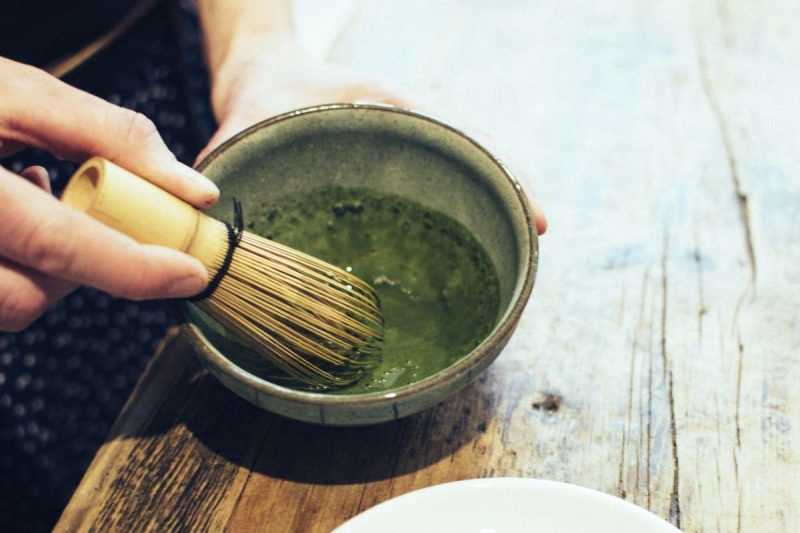Last updated on January 15th, 2024 at 06:02 pm
Matcha vs. Coffee?
Matcha and coffee are two popular beverages that many people enjoy for their flavor and energy-boosting effects. But how do they compare in terms of taste, health benefits, and caffeine content? Here are some main differences, pros, and cons of matcha and coffee.
Matcha vs. Coffee, In Taste
Matcha is a type of green tea that is made from finely ground leaves of the Camellia sinensis plant. Matcha’s taste is often described as umami with hints of nuttiness, sweetness, grassiness, and occasional bitterness, depending on the matcha grade.
It’s smooth, slightly bitter, and reminiscent of green vegetables. In its pure ceremonial form, Matcha can be prepared by whisking the powder with hot water; but it can be dressed up with milk, honey, and milk for a sweeter morning drink or by adding it to smoothies, lattes, or baked goods.
Coffee is a brewed drink that is made from roasted seeds of coffee berries. It has a dark brown color and a rich, aromatic, and acidic flavor.
Coffee can be prepared in various ways, such as drip, espresso, French press, or cold brew. Coffee can be enjoyed black or with milk, cream, sugar, or flavored syrups.
Matcha vs. Coffee, In Health Benefits
Both matcha and coffee have some health benefits, mainly due to their antioxidant content. Antioxidants are compounds that protect the cells from damage caused by free radicals, which are unstable molecules that can contribute to aging and chronic diseases.
Matcha contains a type of antioxidant called catechins, which have been shown to have anti-inflammatory, anti-cancer, and anti-diabetic effects. Matcha also contains L-theanine, an amino acid that can enhance mood, relaxation, and cognitive function.
Coffee contains a type of antioxidant called polyphenols, which have been linked to lower risks of heart disease, stroke, diabetes, and some cancers. Coffee also contains chlorogenic acid, a compound that can help regulate blood sugar and blood pressure levels.

Matcha vs. Coffee, In Caffeine Content
Both matcha and coffee contain caffeine, a stimulant that can increase alertness, energy, and mental performance. However, the amount and the effects of caffeine vary depending on the type and the preparation of the drink.
Matcha has less caffeine than coffee per serving. A standard cup of matcha is prepared by mixing 1 teaspoon (about 2 grams) of the powder with 2 ounces (60 mL) of hot water, while coffee is typically brewed with hot water.
Usually, matcha contains 19–44 mg of caffeine per gram — equaling 38–88 mg per 2-ounce (60-mL) serving if prepared the standard way — while coffee contains around 96 mg of caffeine per 8-ounce (240-mL) cup.
However, matcha may provide a more sustained and balanced energy boost than coffee.
This is because matcha contains phytonutrients that slow down the release of caffeine into the bloodstream, resulting in a longer-lasting and smoother effect.
Coffee, on the other hand, may cause a more rapid and intense spike and crash in energy levels.
What Is the Verdict, Matcha vs. Coffee?
Matcha and coffee are both delicious and energizing drinks that have some health benefits.
However, they differ in their taste, antioxidant profile, and caffeine content.
Depending on your preferences and needs, you may choose one over the other or enjoy both in moderation.
Keep In Touch If You Like My Articles.
As much as I like to share my knowledge and skills with you, I love to hear from you. If you have any suggestions or comments, please click here. Also don’t forget to subscribe to our quarterly newsletters if you like my blogs and like to keep in touch.
Of course, read more blog posts I post now and then, such as “Can Coffee Go Bad? Yes, and Here’s How to Fix It In 7 Easy Ways“.
Thanks for sharing. I read many of your blog posts, cool, your blog is very good.